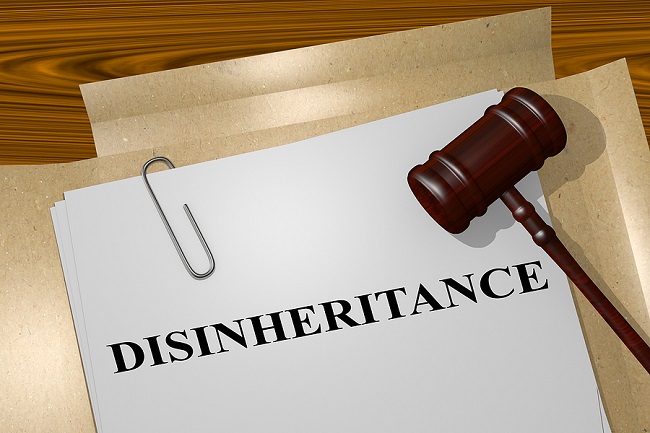When someone dies, that person’s estate typically passes to any surviving spouse, children, or other close relatives. If a person dies intestate – without a will – the estate will likely be distributed this way under state law. But what if you don’t want one of your close relatives to inherit anything? In that case, you will need to take legally binding steps to disinherit the person in question.
Why Would Anyone Disinherit a Relative?
If you’ve never been in a position in which you needed to disinherit a relative, you might not understand why anyone would want to. However, there can be good reasons for doing so.
In some cases, a disinheritance may follow a falling out with a family member. If you’re no longer on talking terms with a family member, you may not want to include that person in your will, either.
Other times, however, a disinheritance may not indicate bad feelings or ruined relationships. It may simply be about need – one person needs your estate, and another person does not. Dividing an estate equally may seem fair and simple, but it’s not always the most logical or practical approach, especially if someone in your family has special needs. Some people may also choose to leave their estate to a nonprofit organization.
How to Disinherit Someone
If you’ve decided to disinherit someone, you should work with an estate planning attorney to make sure that your estate planning documents reflect your current wishes.
- Create or update your will and trusts. Make sure these documents meet the legal requirements in your state.
- Check your beneficiary designations. When updating an estate, people sometimes forget to consider the beneficiary designations in life insurance policies, retirement accounts or other assets. This can result in your assets going to someone against your current wishes. Make sure you’ve updated all of your beneficiary designations as needed. It’s important to do this after a divorce, as well.
How to Avoid Disputes
Even if you feel that you’ve made your wishes clear, it’s always possible that disinherited relatives will dispute the will after your death. They may claim that you simply forgot to include them in the updated will, for example. Alternatively, they may claim that the new will is not valid on some basis, for example, because it was written under undue influence.
In some cases, these claims may be aided by a less-than-solid estate plan. A DIY will may not meet the state’s legal requirements, for example, or it may lack key clauses, making it easier for resentful relatives to contest it. In some cases, a living trust may be the best way to proceed when disinheriting a relative.
An experienced estate planning attorney can help you make sure that your wishes are clear and legally binding. Contact Skinner Law for all your estate planning needs.

